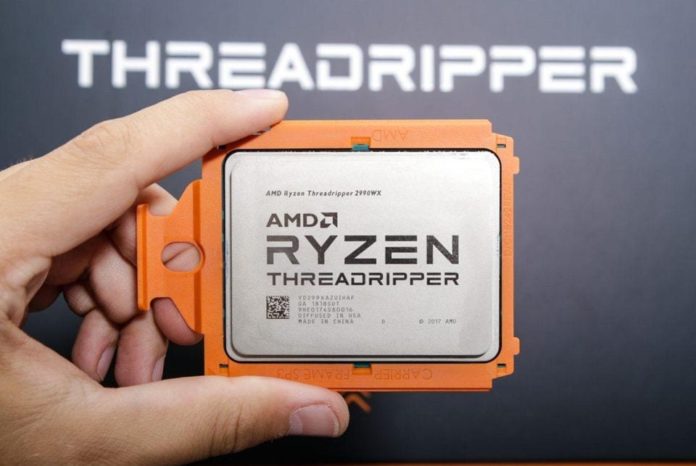There have been so many rumors surrounding AMD’s upcoming Zen 2 based Ryzen 3000 processors that it’s hard to tell what’s true and what’s not. We know with a degree of certainty that AMD’s next-gen CPU lineup will have 50% more cores compared to its predecessor and a higher IPC, though by how much, we don’t know for sure. A while back, it was being speculated that Zen 2 will have a 10-15% IPC uplift compared to Zen which is pretty impressive considering that in the case of Zen+, it was less than 5%. However, these are still unverified rumors, and a new leak suggests that the IPC gain won’t actually be that high.
Popular Twitter leaker, TUM_APISAK has shared an engineering sample of a 12 core/24 thread CPU based on the Zen 2 architecture via
Related:
Intel 10nm Icelake-U Gen11 UHD Graphics Surfaces on SiSoftware

Both these processors are 12 core parts with 24 threads, but the Zen+ based Threadripper has a higher boost clock of 4.3GHz while the speculated Zen 2 sample is limited to 3.35GHz. If the IPC of the latter was even 10% higher than the former than there wouldn’t be this kind of performance deficit, yet here we are. Even after the 12-core
Still, this is a synthetic test and that too of an engineering sample, but one thing you can be sure of is that the single core performance or the IPC won’t be increasing by 10-15%. A gain of 5-7% is more likely and practical.
Read more:



Eng sample boost frequency is 30% lower than 2920x… So if we scale the score of eng sample by 30% then single core score is around 140.. that is 10% more than 2920x… I think it’s good right…
Overclocking usually yields gains of 10-15%. This would close the gap between the two, and perhaps make the Zen2 chip a bit faster but not by much.
Overclocking what exactly? 2920x isn’t much of an OCer, not to mention the zen2 chips have IF2, support higher speed mem, more cache, PCIe 4.0 just to name a few. Also the gains you’re talking about depends heavily on application, unless you simply meant clock speed in which case 2920x will still lose with a lower IPC.
Engineering samples are clocked lower than production or the final products. Furthermore, since these parts are based on the 7nm node, they should have a lower power draw and higher clocks. But yeah in case of applications that aren’t much affected by the clocks, it looks rather dismal. Then again, we don’t know not genuine or precise these tests are.